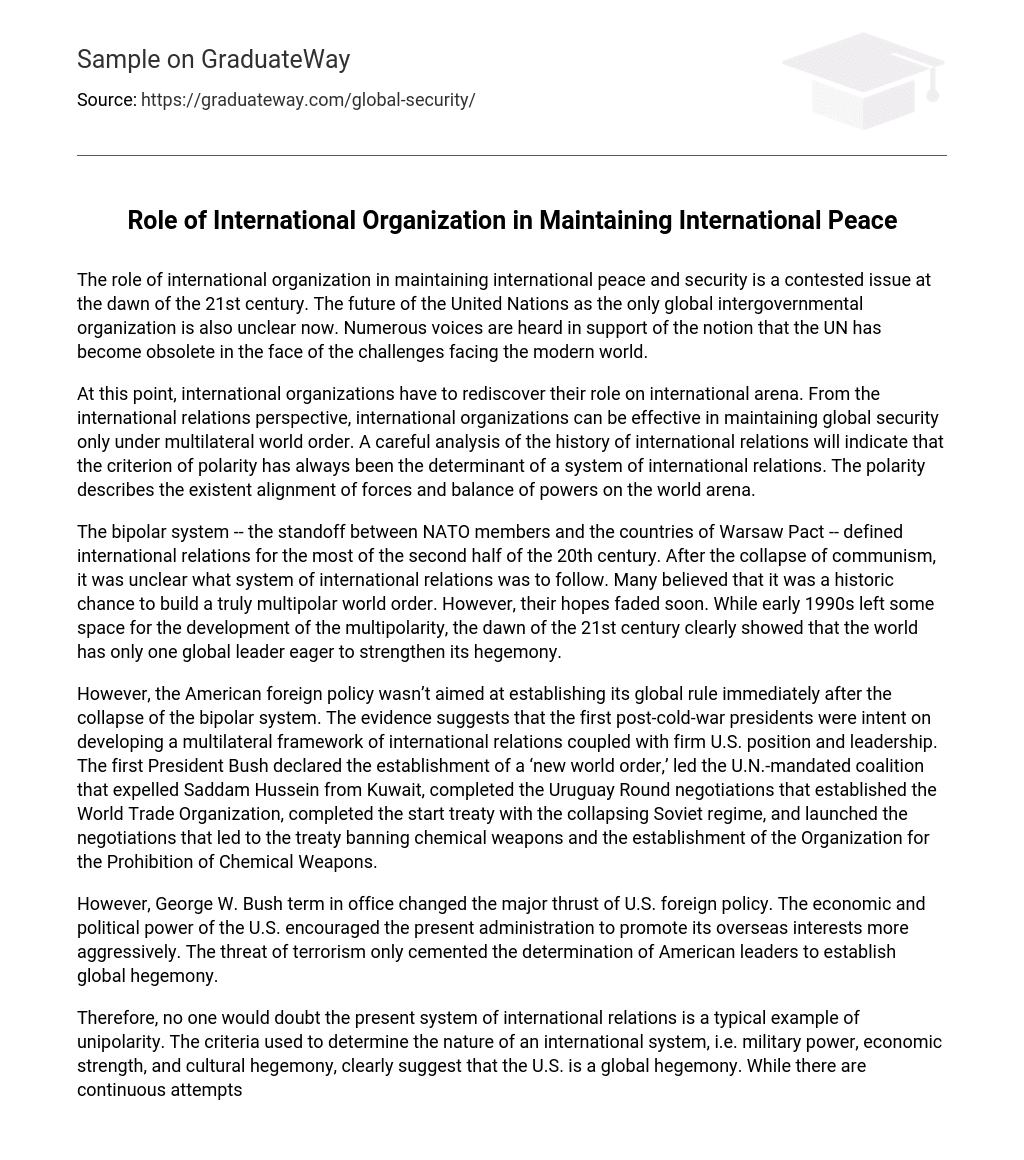The role of international organization in maintaining international peace and security is a contested issue at the dawn of the 21st century. The future of the United Nations as the only global intergovernmental organization is also unclear now. Numerous voices are heard in support of the notion that the UN has become obsolete in the face of the challenges facing the modern world.
At this point, international organizations have to rediscover their role on international arena. From the international relations perspective, international organizations can be effective in maintaining global security only under multilateral world order. A careful analysis of the history of international relations will indicate that the criterion of polarity has always been the determinant of a system of international relations. The polarity describes the existent alignment of forces and balance of powers on the world arena.
The bipolar system — the standoff between NATO members and the countries of Warsaw Pact — defined international relations for the most of the second half of the 20th century. After the collapse of communism, it was unclear what system of international relations was to follow. Many believed that it was a historic chance to build a truly multipolar world order. However, their hopes faded soon. While early 1990s left some space for the development of the multipolarity, the dawn of the 21st century clearly showed that the world has only one global leader eager to strengthen its hegemony.
However, the American foreign policy wasn’t aimed at establishing its global rule immediately after the collapse of the bipolar system. The evidence suggests that the first post-cold-war presidents were intent on developing a multilateral framework of international relations coupled with firm U.S. position and leadership. The first President Bush declared the establishment of a ‘new world order,’ led the U.N.-mandated coalition that expelled Saddam Hussein from Kuwait, completed the Uruguay Round negotiations that established the World Trade Organization, completed the start treaty with the collapsing Soviet regime, and launched the negotiations that led to the treaty banning chemical weapons and the establishment of the Organization for the Prohibition of Chemical Weapons.
However, George W. Bush term in office changed the major thrust of U.S. foreign policy. The economic and political power of the U.S. encouraged the present administration to promote its overseas interests more aggressively. The threat of terrorism only cemented the determination of American leaders to establish global hegemony.
Therefore, no one would doubt the present system of international relations is a typical example of unipolarity. The criteria used to determine the nature of an international system, i.e. military power, economic strength, and cultural hegemony, clearly suggest that the U.S. is a global hegemony. While there are continuous attempts to challenge this hegemony from the side of EU, Russia, and lately China, America has good chances of retaining its dominant position for the years to come.
One of the characteristics of the unipolar world order is that the world leader claims the right to resort to force as it sees fit. This is exactly what lies in the core of the U.S. doctrine of the pre-emptive strike, employed to justify the military operation in Iraq and discussed in connection with other Middle Eastern states.
However, there is a theory that a unipolar system is characterized by a greater degree of stability than multilateral:
‘There is…[an]…agreement that major wars may be less likely to occur under conditions of unipolarity or hegemony, but the empirical base for that generalization is very limited, perhaps only to the years since the end of the cold war’ (Russett, 2003, p.11).
So, despite the widespread stereotypes, the U.S. hegemony might as well be a good thing for the global world order. Therefore, the role of international organizations in global security is gradually diminishing as the U.S. as a global leader is taking over their functions.
References
Russett, Bruce. ‘International Relations.’ 2003. July 8, 2007. <www.yale.edu/leitner/pdf/2001-07.pdf>





